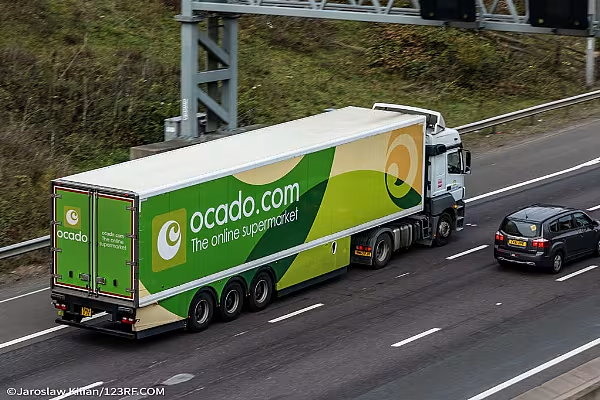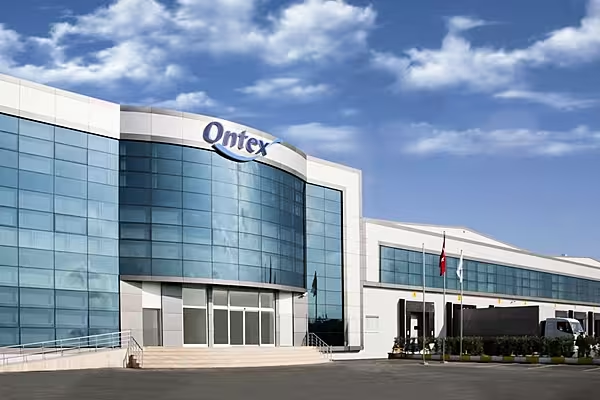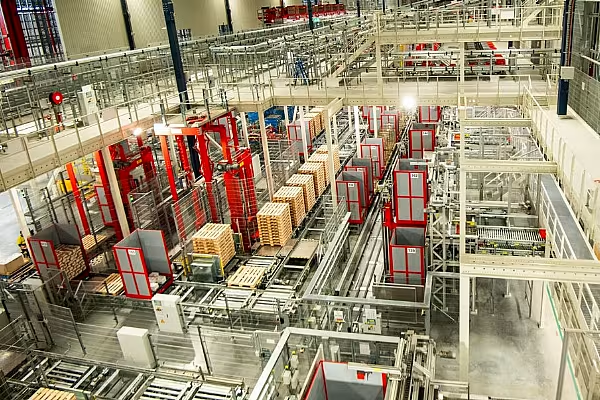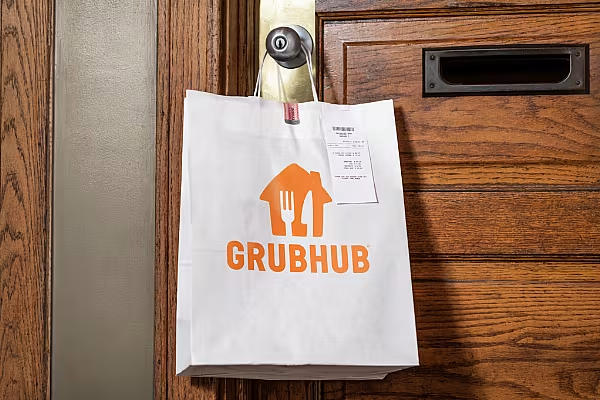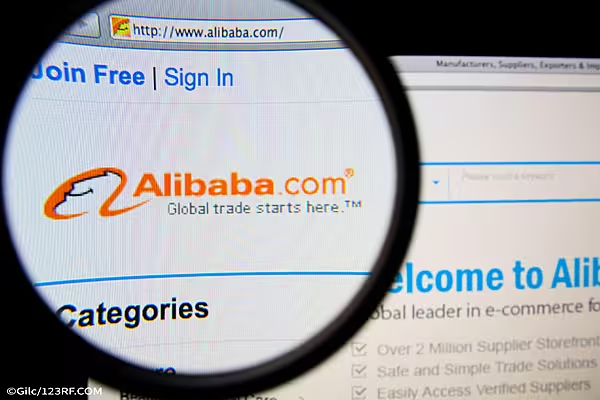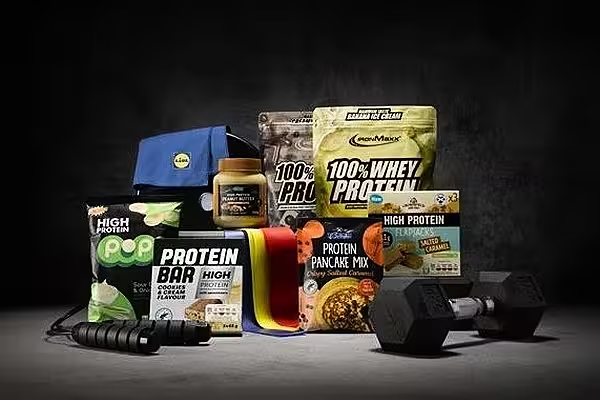Ocado Retail, a joint venture between Ocado Group and Marks & Spencer, this week reported a 3.9% decline in fourth quarter revenue, however revenues were up by close to a third compared to the same period in 2019.
Commenting, Melanie Smith, Ocado Retail chief executive, said, "The investments we have made over the past year mean we have significant capacity for growth in 2022 and we will continue to invest in facilities, systems and people in the year ahead to deliver on our long-term growth potential."
Here's how leading industry analysts viewed its performance.
Roberto Pozzi, Moody's
“Ocado will keep chipping away market share from its competitors in 2022 but margins will remain low, a credit neutral for Ocado and a negative for the UK grocery sector.
"Ocado’s orders volume and revenue kept rising in the last quarter of fiscal 2021 ended 28 November compared to pre-pandemic levels (+14% and +31% respectively) although revenues were down year to year reflecting smaller basket sizes. With three new warehouses (CFC) opened in 2021, another site to go live in the second half next years and four Zoom sites expected to open, Ocado’s capacity will increase by 50% in 2022. The capacity ramp up makes Ocado’s revenue guidance in the mid-teens sound either conservative or underwhelming.
"Either way, Ocado will clearly continue to chip away at the market share of the other grocers, especially of those with a presence in the larger metropolitan areas served by Ocado’s lorries."
Juliet Cuell, GlobalData
“With the number of COVID-19 cases rising since the arrival of the Omicron variant in the UK, shoppers are likely to be apprehensive to shop in-store once again, supporting a greater shift to online grocery shopping in the run up to Christmas, aiding Ocado as it enters its next financial year.
"The online grocer has continued to develop its infrastructure, ensuring it remains competitive with multichannel grocers that have accelerated online investment since the start of the pandemic. Ocado has ramped-up capacity at its newest CFCs in Andover (opened in August) and Purfleet (opened in September), supporting growth in active customers particularly given the reduced capacity of its Erith CFC since the fire in July 2021, which only returned to pre-fire levels recently in mid-November, and its high level of automation means Ocado can minimise any impact of labour shortages.
"Following the success of Ocado’s first Zoom site in Acton, which opened in 2019, the online grocer expects to open a second site in Canning Town by June 2022, with three further sites planned for the second half of 2022 to deliver groceries to more customers within one hour. The expansion of this service has been slow and while the online grocer suggests that Ocado Retail Zoom will generate greater revenues than its competitors with higher average basket sizes, it will come up against stiff competition from the vast number of rapid delivery start-ups gaining traction in the UK.
"Getir acquired competitor Weezy in November 2021, which will widen its reach even further – the start-up already operates outside of London in Manchester, Brighton, and Bristol – as it aims to step up operations within smaller town locations, creating a nationwide network. Ocado must ensure it expands to new Zoom sites quickly in areas where competitors do not currently operate to capitalise on the demand for ultra-high convenience.”
Xian Wang, VP, Edge Retail Insight
“The pandemic set in motion a permanent and sustained shift to online grocery shopping. Data from Edge by Ascential shows that during the lockdowns of 2020, edible grocery e-commerce jumped more than 60% in the UK, almost six times the growth in 2019 (up 11%).
“Against that backdrop, pureplay e-commerce grocer Ocado, which has for years been investing in robotics innovation, highly-automated microfulilment centres and last-mile delivery is in a strong position to take advantage of the new era of grocery e-commerce.
“Ocado’s main approach has historically been to operate as a technology partner to grocery retailers in the UK and abroad. It has partnerships with Kroger, Groupe Casinos and Sobey and more coming on stream next year. It has also been investing in its Zoom last-mile service as the ultra-rapid sector raises customer expectations with regard to speed of delivery.
“Ocado is ahead of the curve in optimising digital services offering personalised meal planning and flexible fulfilment. For instance, it has a range of ‘Easy Shopping’ options on its grocery site, including ‘Ocado Regulars’, which automatically adds shoppers’ favourite or recurring products to their basket every week, as well as ‘List Search’, which enables shoppers to search for multiple items at once.
“Can Ocado deliver a bumper Christmas? A lot will depend on whether we get more restrictions as a result of the new coronavirus variant and people are forced to stay home again. Long-term though, with ecommerce costs cutting into retailer profits, Ocado, with its end-to-end tech-enabled logistics and fulfilment OSP platform, could be just the ticket.”
Clive Black, Shore Capital
"Ocado Retail remains a business that has generally high service levels and customer satisfaction, all of which underpins the wider group proposition. Underlying 2Y sales growth is strong and the prospects for further revenue growth look robust. Such growth, however, requires further capital investment, given the nature of the business model, which means that overall capital returns are very poor; especially if we look at the gross costs of Hatfield and so forth.
"On top of investment in new capacity, Ocado Retail, despite its robotics and automation rhetoric, is far from immune from everyday industry cost vagaries from dry ice to van drivers, all of which will negatively impact Ocado Retail and so Ocado Group in FY22 – guidance looks like a significant warning to us, maybe 30%."
Russ Mould, AJ Bell
“The market has taken a positive view of Ocado’s collection of news, despite some of it being negative. It’s a massive relief to the business that it won the first-round ruling in a patent fight with Autostore over technology linked to robot warehouses.
“While the legal fight is still ongoing, the results so far mean investors can worry less about Ocado having to pay out money for patent infringement or having its reputation tarnished. However, Autostore is going to fight the ruling to the very end so there is still an underlying risk associated with the matter.
“In terms of trading, Ocado has seen an increase in average orders per week for its joint venture with Marks & Spencer, both on a one and two-year comparable basis. But revenue has slightly dipped on a one-year basis. Given that food prices have gone up in recent months and the joint venture has been growing customer numbers, management will be disappointed that overall sales haven’t matched or beaten the same period last year.
“While the latest quarter can be viewed somewhat negatively, there is no denying that the Ocado/M&S joint venture has been a successful one. Marks & Spencer has finally caught up with rivals in terms of having a decent online grocery offering, so could it go the next step and buy out its partner over the next few years?
“Following the shock of the pandemic, 2021 was meant to be the year when Ocado picked up lots more customers for its warehouse systems as other grocery providers realised the importance of the online channel. So far, these new deals have been few and far between; however, such decisions may simply take time and corporates might be in a stronger position now coming out of the pandemic to commit to something like Ocado’s set-up.”
© 2021 European Supermarket Magazine. Article by Stephen Wynne-Jones. For more Retail news, click here. Clicksubscribe to sign up to ESM: European Supermarket Magazine.
